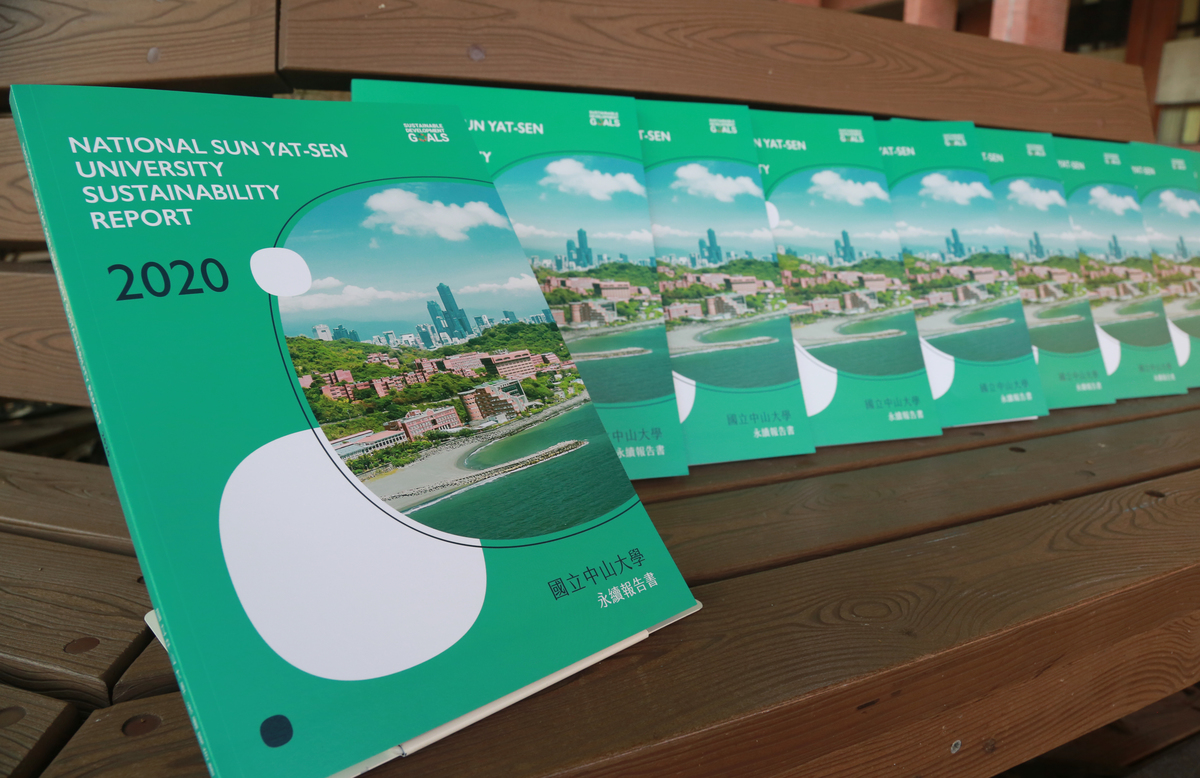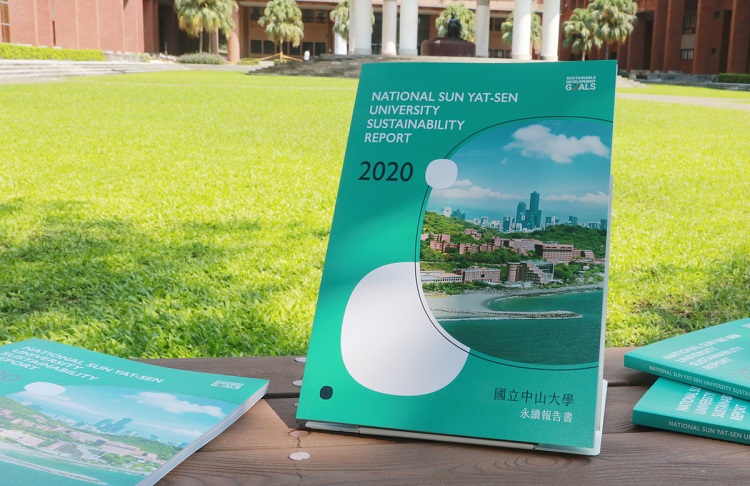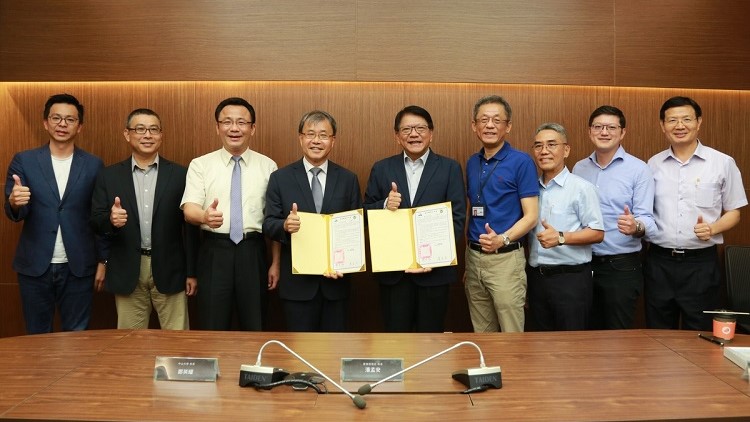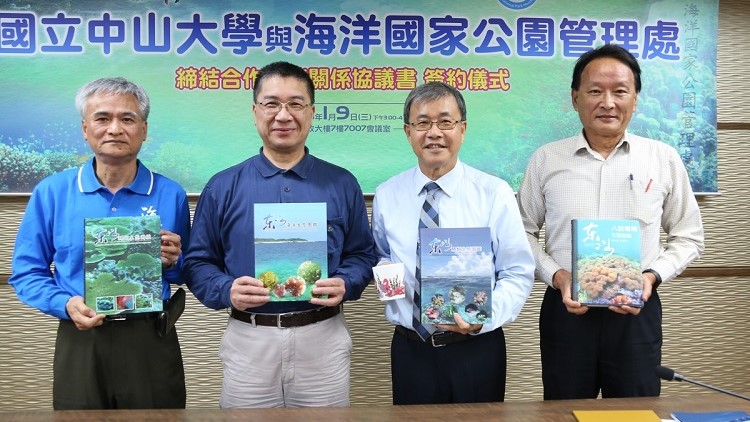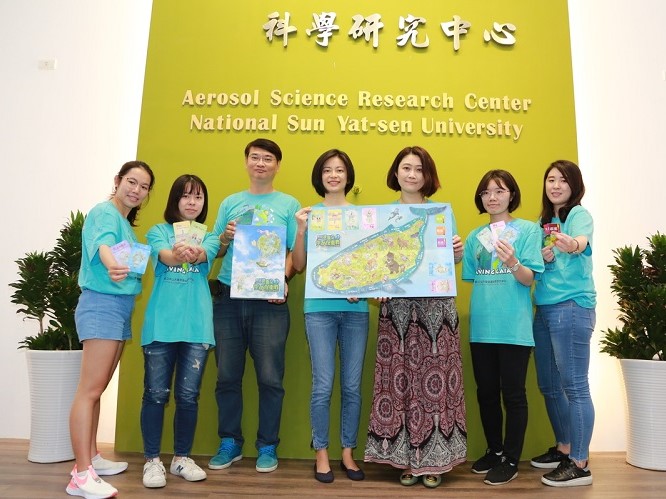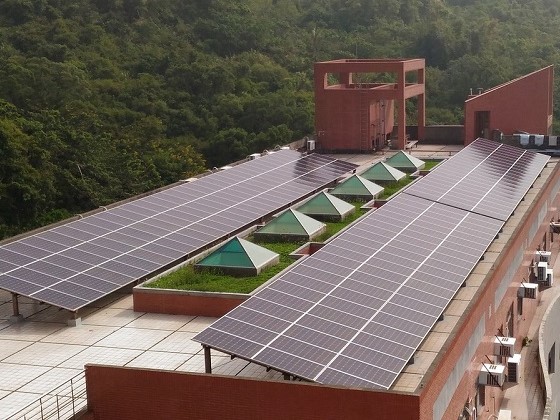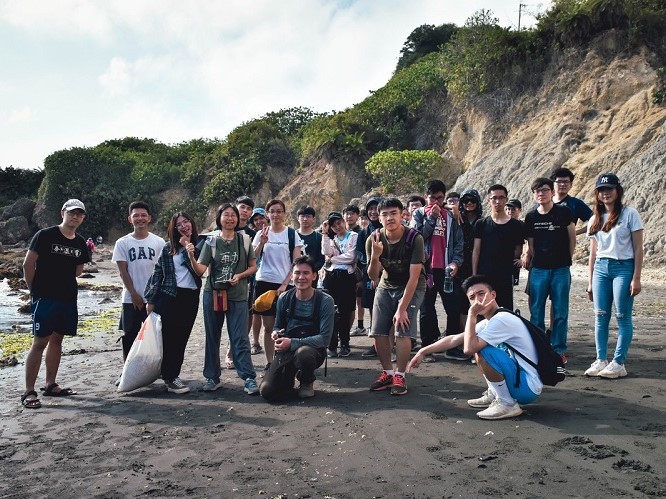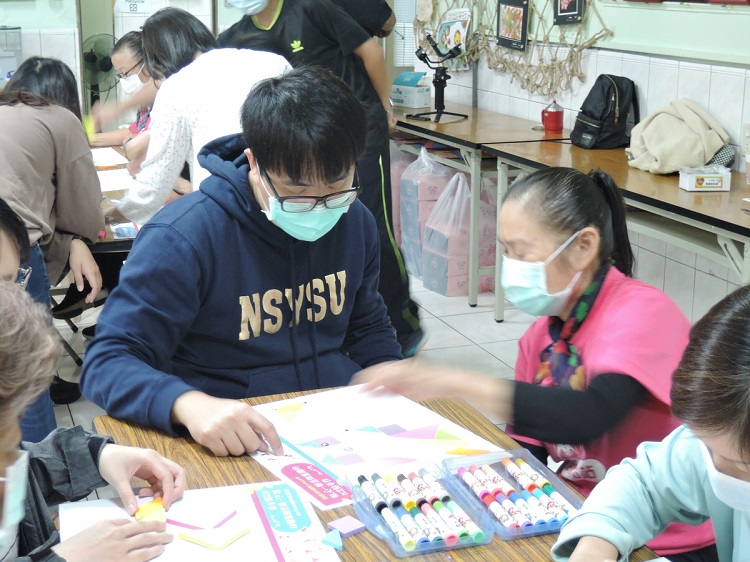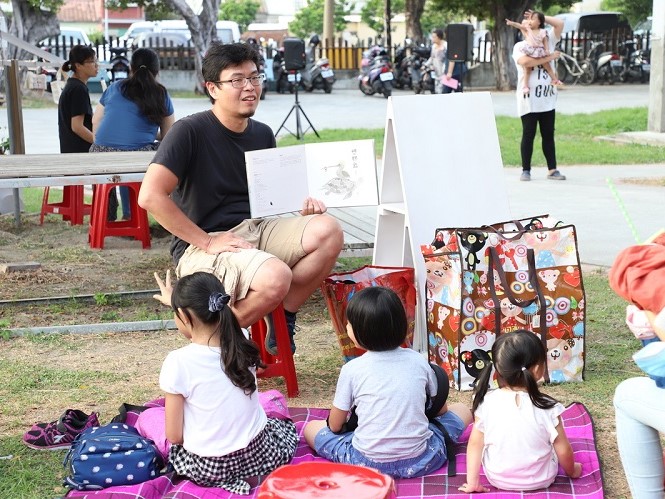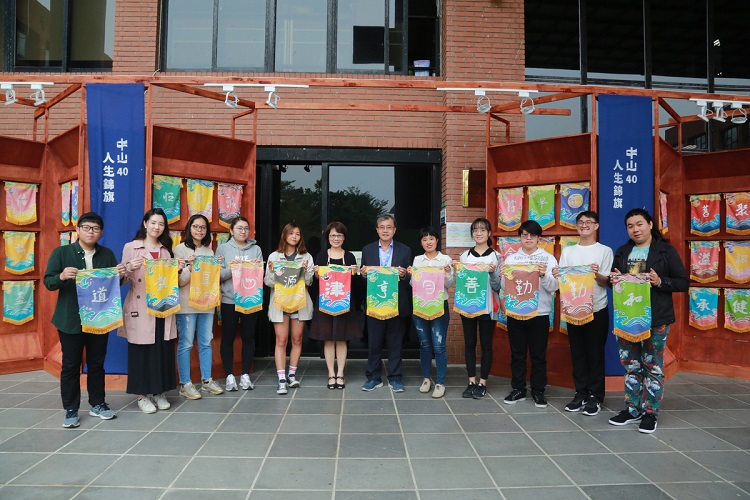As people gain more and more awareness of environmental sustainability, sustainable development has become an important international trend. NSYSU has just published its first Sustainability Report this year to showcase its achievements and performance on the environmental, social, and governance level (ESG), as well as review its results in social responsibility and the promotion of sustainable development.
NSYSU is a research university of great importance in south Taiwan and a driving force for the regional development in the Kaohsiung and Pingtung areas. Besides achieving remarkable results in academic research and industry-academe collaboration, social responsibility and sustainable development are its important development goals. In 2018, NSYSU established a first-level cross-college unit, Social Engagement Center, that integrates the University’s social practice projects. The compilation of the first edition of the NSYSU Sustainability Report was assigned by University President Ying-Yao Cheng to the Social Engagement Center and the Office of Institutional Research, while Senior Vice President I-Yu Huang was the convener of the project. The Report covers such aspects as the introduction to the university, academic affairs development, financial situation, internal control mechanisms, and communication with stakeholders, and transforms the ESG concepts into three main aspects: “environmental coexistence”, “social welfare”, and “mutual profit in the academia”.The report demonstrates NSYSU’s achievements in the promotion of sustainable development between 2019 and 2020 and various projects’ response to UN’s Sustainable Development Goals to connect social responsibility practice with international sustainability standards. NSYSU will publish the Sustainability Report annually to share the results of social practice and show its commitment to overall sustainable environmental development.
The entire campus of NSYSU will work together to promote the development of sustainable energy and environmental conservation, moving towards a smart green campus. In 2020, the University’s green procurement ratio has reached 99.85%, and 100% of the lamps used are energy-saving LEDs. To save energy even more effectively and reduce carbon emissions on campus, solar panels have been installed on the roofs, with the annual power generation reaching 1.33 million kilowatts. At the same time, the replacement of equipment with energy-saving versions and virtualizing of server rooms brought the annual energy savings of 5.59 million kilowatts and carbon emissions reduction of 3907 tons. NSYSU also puts efforts into creating an educational environment respectful of gender and cultural diversity and strives for economic equality by establishing gender-friendly spaces, offering cross-disciplinary programs, actively nurturing talent in sustainable management, and providing various scholarships and counseling programs to enable economically or culturally disadvantaged students to attend school with peace of mind, and help them with networking for a future career. In 2020, the Office of Student Affairs and the Office of Academic Affairs jointly organized an open day for high school students to have the opportunity to experience university life, demonstrating the public nature of higher education.
NSYSU integrates the features of southern Taiwan with its development and connects it to the expertise of its 7 colleges to promote university social responsibility, concentrating on five aspects: ocean watch, social concern, southern Taiwan culture, industrial development, and civic governance. In 2020, when the world was struck by the pandemic, the research by NSYSU Aerosol Science Research Center confirmed that aerosols are the main route of virus transmission and published research results in internationally renowned media and journals, which indirectly led the WHO to revise their guidelines for epidemic prevention. In collaboration with the Graduate Institute of Arts Management and Entrepreneurship, the Social Engagement Center offered a relief assistance program for arts and cultural groups affected by the epidemic, combining the professionalism of academic and administrative units to serve the needs of society.

